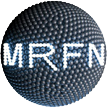ThermoFisher Scientific IS50 FTIR
Rudolph Auto NuIIing Ellipsometer
OCA Contact Angle Measuring Device;
Waters Gel Permeation Chromatography
Spectroline XL-1500 UV Cross Linker
PlasmaEtch Oxygen Plasma Etcher
Thermocraft Tube Furnace
Thermal Probe Scanning Probe Microscope
Polarization Modulation Infrared Reflection Absorption Spectrometer (PM-IRRAS)
NItrogen Glove Box
Spin coater, fume hoods, vacuum and ambient ovens
Cr/Ti Gold evaporator



